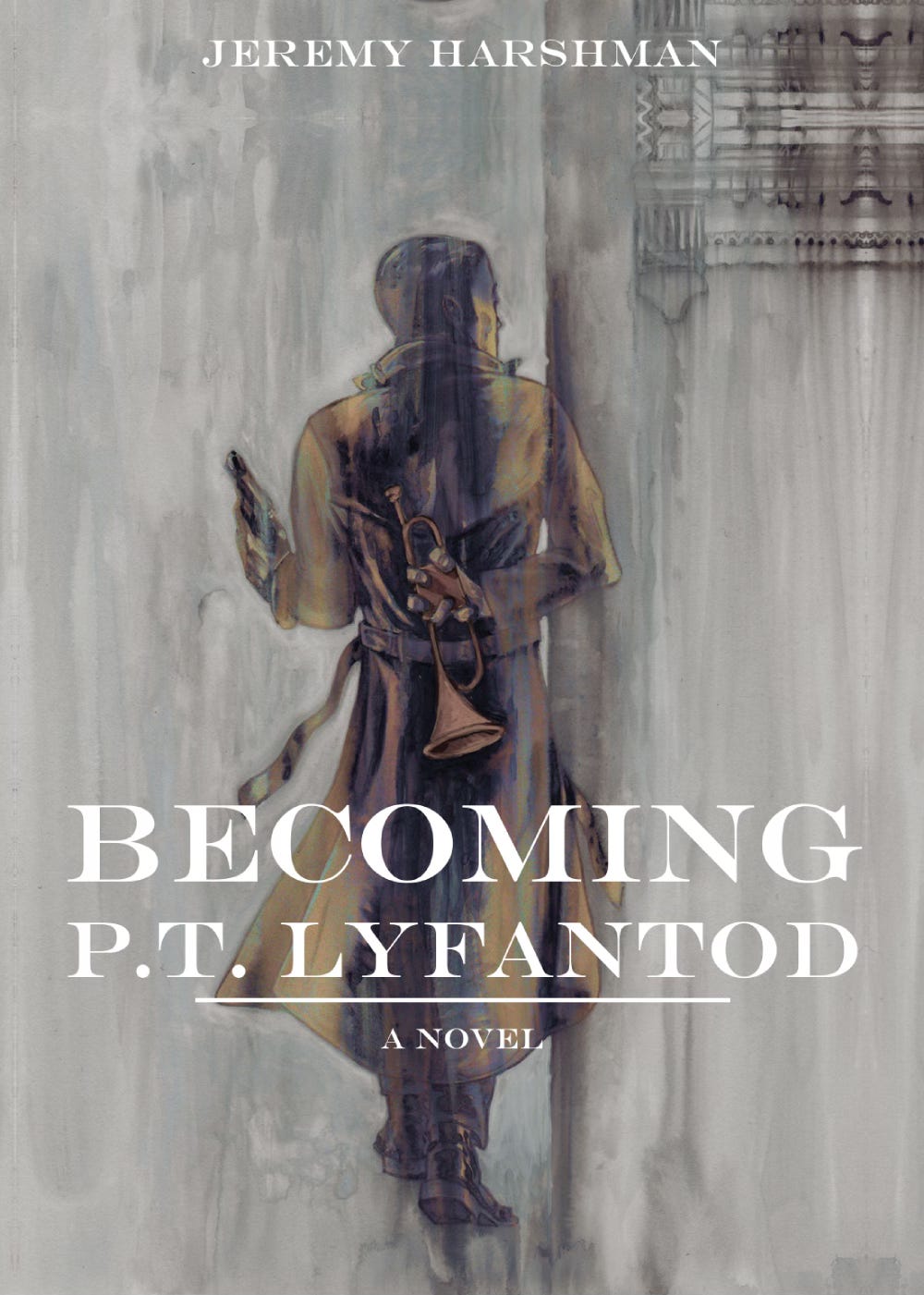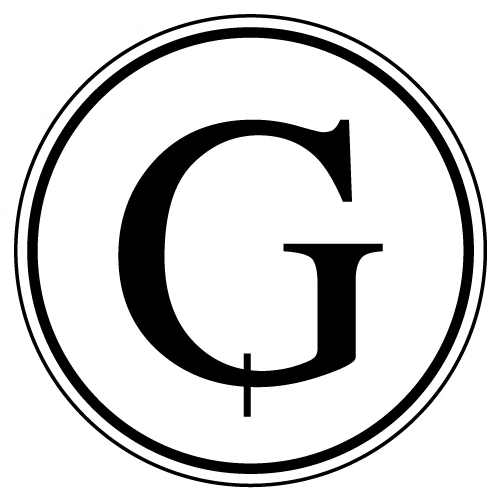Becoming P.T. Lyfantod - 9
A serial fantasy novel
What follows is Part 9 of Becoming P.T. Lyfantod
If you missed Part 1, start there:
I crept through the store, peering through gaps in the shelving under the guise of browsing, ready to bolt the second I saw my mother, praying that I saw her before she saw me. And while I hid, I fumed. The more I thought about it, the more I realized she’d never wanted me or mam-gu. She wanted a house. Her and…Geralt.
The scenario played out in my mind. I convince mam-gu to sell the house she’s lived in for seventy years. We say goodbye to everything and everyone we know and move in with mam and Geralt. I imagine he’s bleach-blond with a short, dark-colored beard, like he’s pressed his mouth against a can of black paint. He wears sunglasses indoors. It’s fine at first, if awkward. Mam and Geralt are on their best behavior, going out of their way to be friendly. They’re generous too. They buy us nice, meaningless things to make us happy. With mam-gu’s money of course.
The deserted aisle I found at the back of the shop was full of books on history. A hole in the shelf offered a view of the door, and judging by the dust and dim light, I didn’t think anyone would find me here. A pair of older girls chatted on the next aisle over…
I start a new school, and it’s awful. I can’t make friends. I struggle in my classes and start to wish we’d never come. Mam-gu rarely leaves the house, because she’s nowhere to go and no one to talk to. She watches telly. Cooks. Does everyone’s laundry—even Geralt’s dirty underwear. Then, when the novelty wears off, and he and mam are sure that mam-gu and her money aren’t going anywhere, we start to see what they’re really like. They leave messes for mam-gu to clean up. Mam starts telling me what I can and can’t do. And Geralt starts to believe he’s my dad—
A flash of green passed before my peep-hole, and I took a startled step backward. I knew that green. There’d been a glint of gold in it. I’d told everyone I knew about the man in green following me at one point or another. I’d heard all the arguments. He was a neighbor. I only noticed him because of his clothes. I didn’t buy it. There was something in the way he looked at me. It was too…familiar. He’d had plenty of opportunities to speak to me and had never done it. But that didn’t mean he wasn’t up to something.
There was a clatter the next aisle over.
“Unhand that, you—” A man’s voice, raised in anger.
“Hey! What are you—” A slap. “Ow!” That sounded like one of the girls.
The commotion drew me like a moth to flame. Curiosity overwhelming reason, I peered into the next aisle, and there he was. The man in green. In the process of wrestling an old book away from one of the girls. Her expression alternated between outraged and afraid. He was facing away from me, but I must have made some noise, for he glanced back.
There was a fearsome scowl on his face and a look in his eyes—which I noticed for the first time were also green—that was almost feral.
He stopped struggling as the girl’s friend hissed in her ear to let go and began dragging her away by the shoulder. The two of them released it simultaneously, and the book fell heavily to the floor. The girls scurried off, casting harried glances over their shoulders till they were out of sight.
The man in green regarded me, and I him. Then, despite all the effort he’d gone to get it, he picked up the book and placed it on the nearest shelf. He gave it a pat, smoothed the front of his suit, and offered me a forced smile. He turned and strode away.
After a moment’s hesitation, I dashed to the end of the aisle in time to see a flash of green vanish out the door as it closed. I stood there, wondering what I’d witnessed. Then I went back to examine the book. It was hardbound and obviously used. Its plasticky dust-jacket crinkled under my fingers. The creased £3 sticker on the back was so loosely attached I thought it might have fallen off something else. Old Magick In Modern Britain, by Thomas P. Willoughby. Judging by the cover, modern was relative. It was a photo in sepia tones of a smallish man in a dark suit and hat, standing in a field on a cloudy day. On closer inspection, I spotted Stonehenge in the background.
I turned it over to read the back.
This collection of works by Thomas P. Willoughby, FBA, FLS, Professor of Social Anthropology at Cambridge, contains many secrets once lost and unravels mysteries so old, so deep, so far removed from contemporary discourse as to have been forgotten entirely. From the famous henges of the Salisbury Plain to the fairy steps of Cumbria, Willoughby delivers a comprehensive account of the true supernatural origins of Great Britain’s best and least known historical treasures. First published as a series of academic papers, essays, and thoughtful musings—
“P.T.!”
I practically jumped out of my skin. My mother’s hair was blown all out of place, her face flushed, her breathing heavy. “I can’t believe you ran away from me like that! I’ve been looking all over, and here you’ve been—what’ve you got there?”
“What? Nothing.” Surprise gave way to anger. After one final glance, I crammed the book into a narrow gap on the shelf. “I was just going.” I squeezed past my mother, and this time I’d give her no chance of following. The little bell tinkled wildly as I burst through the door at a run. It was still tinkling as I turned down a small street called Swan, which became a footpath beside a plot of grass, before running into a four-lane road parallel to High Street.
Normally I’d have turned south toward Alexandra Road, which after a number of name changes would’ve taken me most of the way home—but if my mother came hunting me in her car, that was the first place she’d look. So I turned north, to make my way back through side streets and neighborhoods. She’d never find me there. I only stopped running once I was safe among the houses. With three miles left to go, it was going to be a long walk home.
As I walked, I argued with my mother in my head. In my mind, she was already guilty of all the things I’d imagined her doing while I hid. I wished she’d leave me alone, go back to ignoring me as she’d done my whole life. I never wanted to see her again. I forgot about the man in green, his book, and Thomas Willoughby. I had no room for anything but anger, and that anger kept me going as the sun slid toward the horizon, and one after another lights began coming on in the houses along the road.
When I finally made it home, it was almost dark. I was tired, and my feet hurt. My mother’s car was nowhere in sight. Good, I thought. I hope she’s gone back to Port Talbot and stays there. Or anywhere. As long as it’s nowhere near me.
Mam-gu burst out of the kitchen as soon as I shut the door. Her face was enough to tell me my mother had been and gone. “P.T! Your mother came by an hour ago. By herself! She told me you’d be along shortly then left. I didn’t know what to think. I was afraid something happened.”
“Everything’s fine,” I lied. “I ran into Iain at the arcade. We were playing, but mam had to go. Iain’s dad gave me a ride home.”
“I didn’t hear a car—”
“I had him let me out at their house. I didn’t want to cause trouble. I walked home from there.”
“Oh. Well, it’s about dinnertime. I didn’t know when to expect you, so I’ve already eaten. Would you like me to heat something up?”
“That’s alright.” I held up the pizza box, which I’d somehow held onto through the whole ordeal. “I’ve got leftovers. I’m pretty tired though. I’m gonna eat up in my room and go to bed.”
Mam-gu eyed me and the pizza box dubiously. “If you’re sure…” I was halfway up the stairs when she asked, “Did you and your mother have a nice time?”
I didn’t stop. “It was fine,” I called over my shoulder. “You know—family time.”





